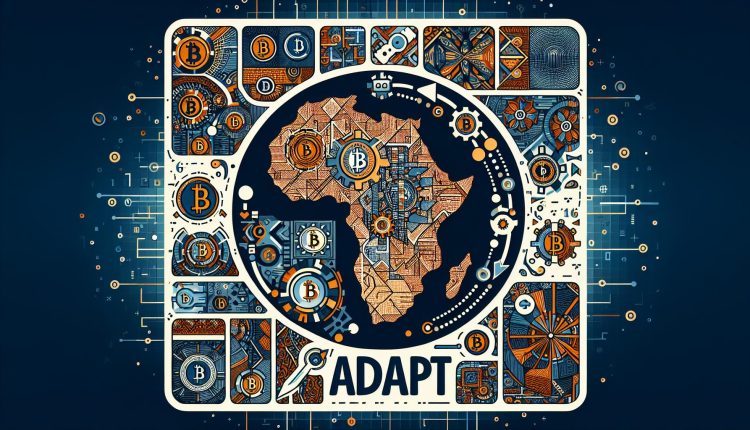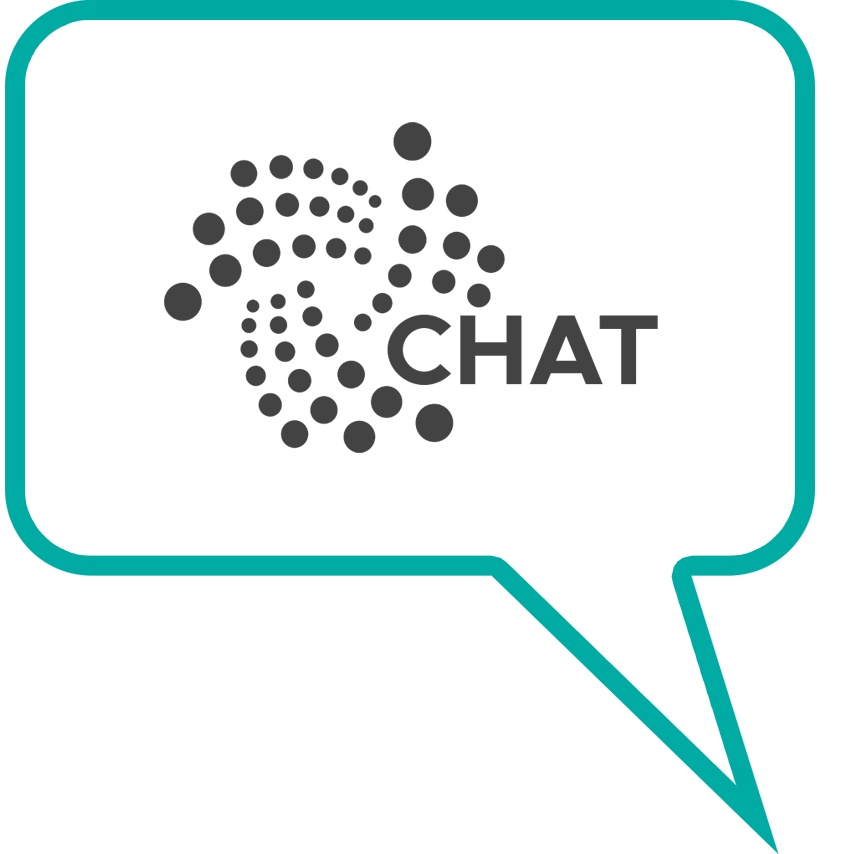
ADAPT: Shaping the Future of Digital Trade in Africa
Revolutionizing Trade in Africa: The ADAPT Initiative
A New Era for African Commerce
Africa stands on the brink of a monumental shift in trade practices that could dramatically alter its economic landscape. In an ambitious move, IOTA has joined forces with the World Economic Forum and the Tony Blair Institute for Global Change under the banner of ADAPT, a groundbreaking initiative spearheaded by the african Continental Free Trade Area. This initiative aims to forge a unified digital public infrastructure that integrates identity verification,data management,and financial transactions to facilitate secure,efficient,and inclusive trading across Africa.
Transformative Potential of Digital Infrastructure
ADAPT-short for AfCFTA Digital Access and Public Infrastructure for Trade Initiative-is poised to redefine how trade is conducted across the continent. By consolidating digital identities, seamless payment systems, and secure data access into one cohesive framework, ADAPT promises to enhance clarity and efficiency among African nations. The projected outcomes are compelling:
- By 2035, all African countries could be interconnected through this singular digital platform.
- Intra-African trade could possibly double by 2035, generating an additional $70 billion in annual trade.
- Economic gains from accelerated and cost-effective trade processes might reach approximately $23.6 billion each year.
- Border clearance times could be reduced from up to two weeks to less than three days.
- Transaction fees for cross-border payments might drop from current rates of 6-9% down to below 3%.
These enhancements will address critical bottlenecks that have long stifled Africa’s trading capabilities.
Overcoming Historical Barriers
Despite being home to 1.5 billion people and boasting a combined GDP exceeding $3 trillion-making it the world’s largest free trade area-Africa’s internal trade levels remain modest at just 17% of its total commerce. This contrasts starkly with regions like Asia or Europe where internal trade significantly surpasses this figure.
Several structural issues have historically undermined Africa’s trading efficiency:
- Lack of trusted digital identities
- Insecure data exchanges leading to data silos
- Reliance on paper-based documentation which prolongs logistics operations
- High costs and delays associated with cross-border payments which siphon roughly $25 billion annually from local economies
- A substantial $81 billion gap in trade-financing which restricts growth opportunities particularly for small-to-medium enterprises (SMEs)
By addressing these challenges head-on through robust digital infrastructure provided by ADAPT, there is potential not only for economic improvement but also enhanced trust across supply chains.
Setting Global Benchmarks Through Innovation
Underpinned by leadership from entities like IOTA alongside esteemed global partners such as AfCFTA Secretariat-the driving force behind this initiative-ADAPT is set not only transform African markets but also position them as leaders in global digital innovation within international commerce spheres.
This strategic collaboration marks a significant step towards dismantling longstanding barriers while paving way towards a more prosperous future driven by technology-led solutions tailored specifically towards meeting unique needs inherent within African markets today.
Revolutionizing Trade in Africa: The ADAPT Initiative
Transforming African Trade with Digital Innovation
The ADAPT platform is set to redefine the commercial landscape across Africa. Spearheaded by the Tony Blair Institute for Global Change, in collaboration with the AfCFTA Secretariat and IOTA Foundation among others, this initiative aims to root Africa’s burgeoning digital market firmly within its own heritage while extending its reach globally. Sir Tony Blair highlighted that practical support will be extended by his teams across 17 African nations, leveraging cutting-edge global technology and financial solutions to foster a truly interconnected African digital marketplace.
Core Components of ADAPT’s Digital Strategy
ADAPT is poised to enhance AfCFTA’s objectives through a tri-layered digital infrastructure focusing on identity, data management, and financial integration.
- Establishing Trusted Digital Identities: This layer ensures that both businesses and governmental bodies can secure self-sovereign digital identities through decentralized identifiers linked with national systems like Kenya’s eCitizen and Nigeria’s NIMC.
- Facilitating Cross-border Data Exchange: By creating a unified source for trade documents and logistics data backed by smart contracts and AI-enhanced compliance tools, ADAPT aims to slash border clearance times significantly.
- Creating an Interoperable Financial Network: This involves integrating various payment systems including mobile money services, banks, and digital currencies into a cohesive network that minimizes transaction costs and speeds up processing times.
These innovations are expected not only to unlock substantial trade finance for SMEs but also enhance security measures and ensure rapid information exchange parallel to goods movement.
The Technological Backbone: Open-Source Infrastructure
At the heart of ADAPT lies its commitment to leveraging open-source technologies such as IOTA’s public blockchain network which facilitates seamless interoperability among existing national infrastructures, industry-specific platforms, and other digital services. IOTA plays a crucial role as both technology provider and integrator in embedding robust blockchain solutions within ADAPT. This integration promises transformative changes across trade processes by digitizing every element of transactions making them verifiable across borders without hindrances.
This complete digitization covers everything from import/export documentation to invoices ensuring all trade-related paperwork is authenticated digitally thus enhancing efficiency at border points by reducing delays associated with manual checks or bureaucratic hold-ups.
Furthermore, the tokenization of physical assets not only secures them but also opens new avenues for accessing innovative financing models which are more favorable compared to customary methods.
Economic Impact: A Leap Towards Free Trade Enhancement
As noted by Chido munyati from the World Economic Forum during discussions about ADAPT’s impact on regional commerce: “This initiative represents a significant advancement towards eliminating key obstacles that hinder business scalability in Africa.” By modernizing how trades are conducted through digitized processes enabled via ADAPT; businesses can expect reduced operational costs coupled with increased transparency-a potential game-changer for economic advancement throughout the continent.
as we look towards future prospects brought forth by initiatives like ADAPT; it becomes clear that technological integration into everyday business practices isn’t just beneficial-it’s essential for sustainable growth in today’s fast-paced global economy especially within emerging markets such as Africa.
Revolutionizing Trade in Africa with ADAPT: A Digital Leap Forward
The Dawn of Digital Trade Networks
The advent of digital currencies like USDT is set to revolutionize the landscape of cross-border trade and financing. By leveraging these technologies, transactions can be executed more swiftly and economically, enhancing the efficiency of international commerce. This innovation promises a unified platform where all stakeholders have access to consistent, reliable data, thereby fostering improved collaboration, accountability, and trust throughout the trading process.
Countries such as Kenya, Rwanda, the United Kingdom, and the Netherlands have already demonstrated successful implementations of this technology. These pioneering efforts underscore the potential for digital solutions to streamline complex trade operations on a global scale.
Strategic Deployment Phases of ADAPT
The rollout plan for ADAPT is meticulously structured into three progressive phases:
- 2025-2026: Initial pilot programs will launch in select nations including Kenya and Ghana.
- From 2026: Efforts will focus on broadening reach to additional countries while establishing robust legal, technical, and governance frameworks.
- 2027-2035: The initiative will expand across all african nations aiming for continent-wide adoption.
Each phase is designed to cultivate strong partnerships with investors and innovators who are keen on advancing Africa’s digital trade infrastructure.
IOTA’s Role in Shaping Africa’s Digital Horizon
IOTA remains at the forefront of Africa’s digital transformation journey beyond just its involvement with ADAPT. Over the next four years:
- IOTA plans to recruit over 40 specialists within Africa to bolster both its own operations and those of its partners.
- It aims to develop decentralized infrastructures that enhance local capacities in digital trade.
- Initiatives are underway to nurture emerging African innovators through events like hackathons and collaborations with universities.
- Specialized trade finance solutions tailored for African markets are set to launch soon.
- Expansion efforts include broader implementation of digital payment systems and stablecoins which facilitate seamless cross-border settlements.
These strategic actions position IOTA as a pivotal player in powering Africa’s transition towards a digitized economy that supports sustainable growth.
Dominik schiener from IOTA Foundation highlights how successful pilot projects in kenya and Rwanda have already showcased that Africa is poised for this transformative leap. He notes that these advancements not only elevate economic prospects but also ensure equitable opportunities in international trade by opening up new financing avenues for countless businesses across the continent.
For further insights into these developments from Dominik Schiener himself you can view his detailed discussion here.
This comprehensive approach not only accelerates economic growth but also integrates modern financial tools into everyday business practices across Africa-setting new benchmarks globally while unlocking vast economic potential regionally.
Enhancing Digital Trade with Decentralized Technology
in the realm of digital commerce, the integration of decentralized technologies is paving the way for a marketplace characterized by enhanced trust, security, and transparency. IOTA’s innovative approach is at the forefront of this transformation, offering a robust decentralized framework that facilitates seamless trade data interactions.
Interactive Learning Opportunity: Dive Deeper into Decentralized Markets
For those eager to explore how decentralized technology can revolutionize market structures, an engaging Ask Me Anything (AMA) session with Dominik schiener and special guests is scheduled for Tuesday at 16:00 CET. This event presents a unique opportunity to gain insights directly from thought leaders in the field. Participants are encouraged to submit their questions via platform X either before or during the live event.
Multimedia Interaction Elements
The user interface includes intuitive controls such as:
- A video control button equipped with an unmute feature, symbolized by an SVG icon designed for clear visual communication.
- A corresponding mute button that hides when activated, ensuring a streamlined user experience.
- An adjustable volume slider allowing users to customize audio levels effortlessly.
These elements are crafted to provide users with a smooth and responsive interaction experience while exploring multimedia content related to advanced technological ecosystems like those offered by IOTA.


